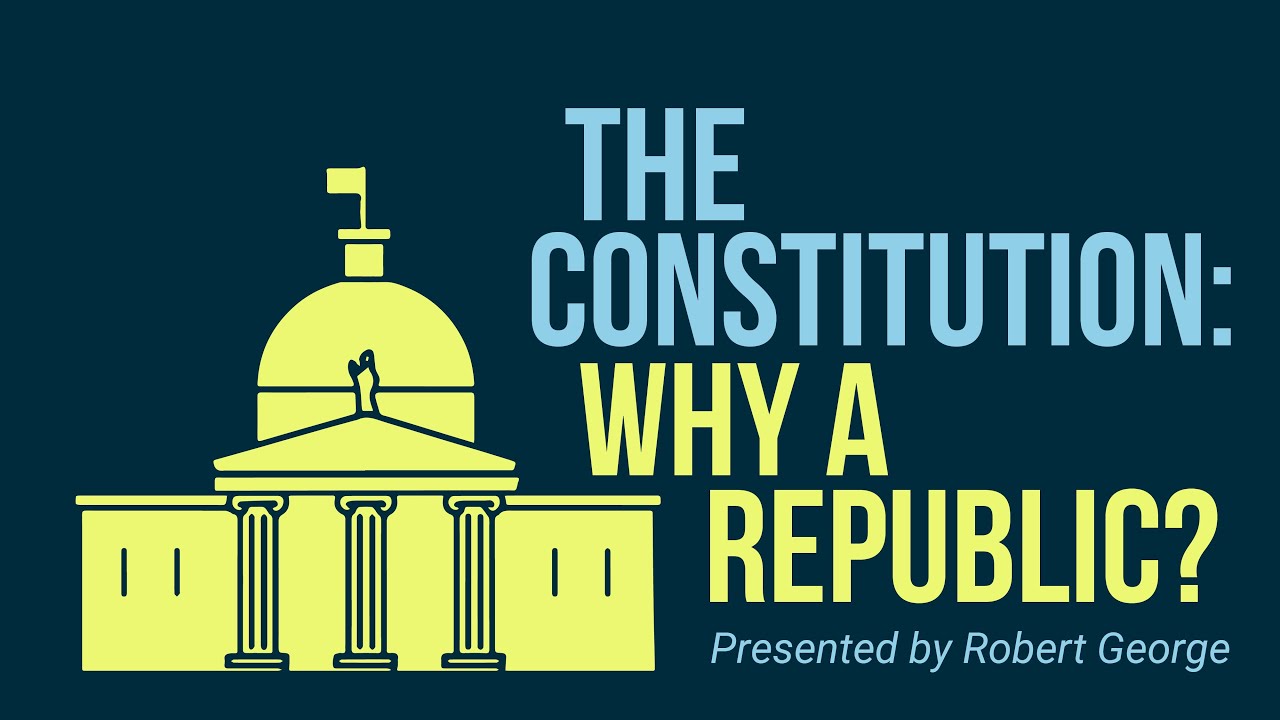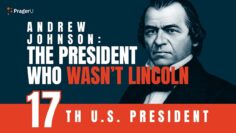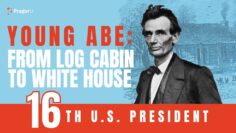
The Constitution: Why A Republic?
Winning the War of Independence brought a new challenge to the American people: what sort of government should they choose for their new nation? Robert George, Professor of Jurisprudence at Princeton University, explores the problems the founders faced at this pivotal moment in history.
#constitution #prageru #history
SUBSCRIBE 👉 https://www.prageru.com/join/
📲 Take PragerU videos with you everywhere you go. Download our free mobile app!
Download for Apple iOS ➡ https://itunes.apple.com/us/app/prage…
Download for Android ➡ https://play.google.com/store/apps/de…
Script:
Against all odds, the Americans won their War of Independence.
But their success brought a new challenge—no less daunting. What sort of government should they choose for themselves?
How could they ensure that the tyranny of the English king George III would not be replaced by a homegrown tyranny?
One possibility was to establish an American monarchy with a better king. That was tempting for some, especially because they had a superb person for the job—General George Washington.
To his legion of admirers, the fact that he did not want to be king made him an even more attractive candidate.
The other possibility was to establish a republic, a government of and by the people and their representatives.
But this solution came with a big problem. Historically, republics like those in ancient Greece and Rome had always failed. And, when they failed, they were usually replaced by the very worst—most oppressive—forms of tyranny.
Might there be a way to make republicanism work—and last? To structure a constitution that would protect the new American republic from the social and political pathologies that had destroyed republics throughout history?
America’s Founding Fathers—men like Washington, Thomas Jefferson, Benjamin Franklin, John Adams, Alexander Hamilton, and James Madison—believed they had answers.
They had risked everything when they declared their independence from England; they were willing to risk everything again to create a new, different, and better type of republic.
The key, they all agreed, was to establish structural limits on power—the power of anyone, and any institution, exercising governmental authority.
In the summer of 1787, in one of the most creative acts in human history, these men (minus Jefferson and Adams who were serving the country abroad) fashioned a national government divided into three separate parts or branches—the legislative (Congress), the executive (the president), and the judicial (the courts). Congress would make laws, the executive would execute the laws and the courts would settle disputes arising under the Constitution and laws of the United States.
Dividing power would prevent power being concentrated in any one branch—the concept of checks and balances. Moreover, the central government would be limited to the powers specifically delegated to it, having no powers beyond those enumerated.
Where then would most of the powers of government reside? The answer was with the states.
This was not, as some wrongly suppose, done to protect slavery. Rather, it was done out of the commonsense belief that those public officials nearer to the people would naturally be more responsive and accountable to the people.
Just to make sure nobody missed the point, after attaching a Bill of Rights to the Constitution, the Founders enshrined this principle in the Tenth Amendment.
“The powers not delegated to the United States by the Constitution, nor prohibited by it to the states, are reserved to the States respectively, or to the people.”
In short, whatever the Constitution does not specifically delegate to the national government belongs to the states and the people.
But the power of the states was also limited by constitutional prohibitions in certain areas, either because power in those areas had been delegated exclusively to the national government—such as the power to enter into treaties with other nations—or because the Framers did not want government at any level to have certain powers—such as the power to confer titles of nobility, something incompatible with republicanism.
For the full script, visit: https://www.prageru.com/video/the-constitution-why-a-republic
source











All I hear people saying is America is a democracy. They must brainwash kids and use propaganda in schools to have a majority of the population saying that. The actual Constitution says America is a Constitutional Republic.
Republic of United States of America
You might say something about the author of the Constitution, Gouverneur Morris.
Agreed, and had the fed gov not started interpreting the Constitution very differently in 1936, we might still have a properly limited government. But now most Americans have no clue about the Constitution, and the fed gov has grown far beyond it's proper boundaries in size and scope.
The Roman Republic failed because Christianity took over it by the 4th century; plus it was a democracy; the worst combination of all. Our constitutional republic was best, and it kept religious power out of government.
According to Democrats we don't even have a republic they like to say we have a democracy which bulshit anyone with a half a brain knows that
Because democracy is mob rule and destined to become the Police State! It's happening all around us today! Your Constitution is the greatest document ever written by men!🇨🇦👍🙏
A Republic, is what the founding fathers put forth as constitutional law. They must’ve been seers of the future. Or maybe they could see the faults of man. We are living with those faults every day. The constitution is a barrier to mob rule. We are seeing our constitutional rights trashed.
This should be taught in grade school and later in high school.😊
Quit calling it a "Democracy" …… Quit calling it a "Republic"….. Quit calling it a "Constitutional based Republic" (just more jabberwocky – jibber jabber))….. And call it for what it is… A government based upon the Federal Reserve…… It isn't capitalism, it isn't socialism, it isn't even communism…. It is simply an entity that exists because of numbers… Real or paper…
Seems we are doing a poor job of keeping it.
This is an unconstitutional government that is not a democracy based on a republic !
💯💯💯💯💯💯💯
The "structural limits" on the "expressed powers" of Congress, and the Executive have been expanded by the Supreme Court beyond original intent with "inherent powers" and "implied powers". Words not in the Constitution.
Any course on this ..that's not woke.
Positively and sadly immigrants that come here legally know more about civics than most nstive born Americans.
We need to get back to being a constitutional republic again and informing the public thru education in are schools including college,a lot of people are vary mislead and confused about our government today, this needs to be a priorty
This was explained beautifully
In the words of Benjamin Franklin, one of the 3 primary authors of the US Constitution: Democracy is two wolves and a sheep deciding on what is for dinner. Liberty is a well-armed sheep contesting the vote.
Captain Kirk explains our country better than anyone else. "We The People"
https://youtu.be/3bYkNptOJns
A Republic protects the individual FROM THE MAJORITY..